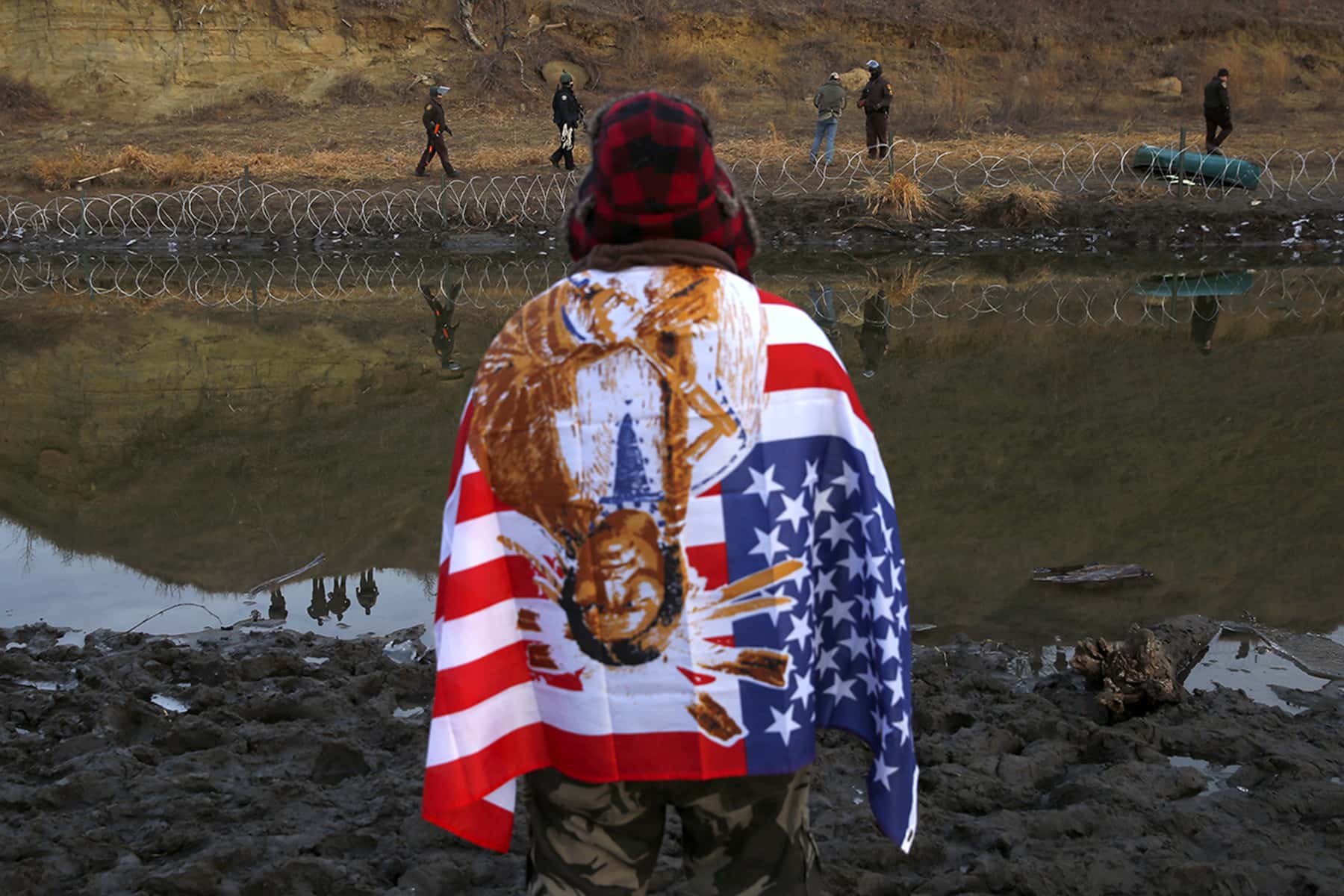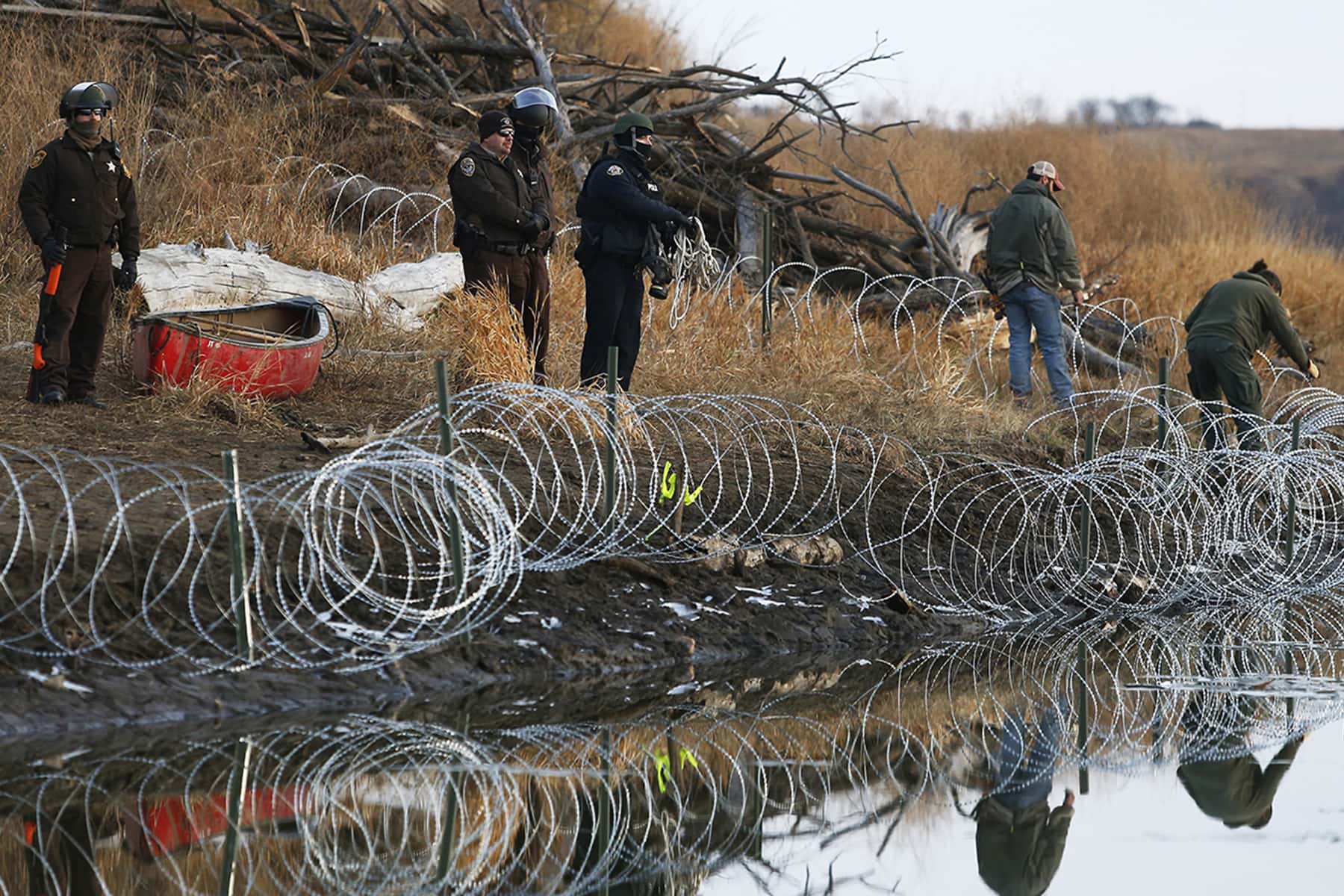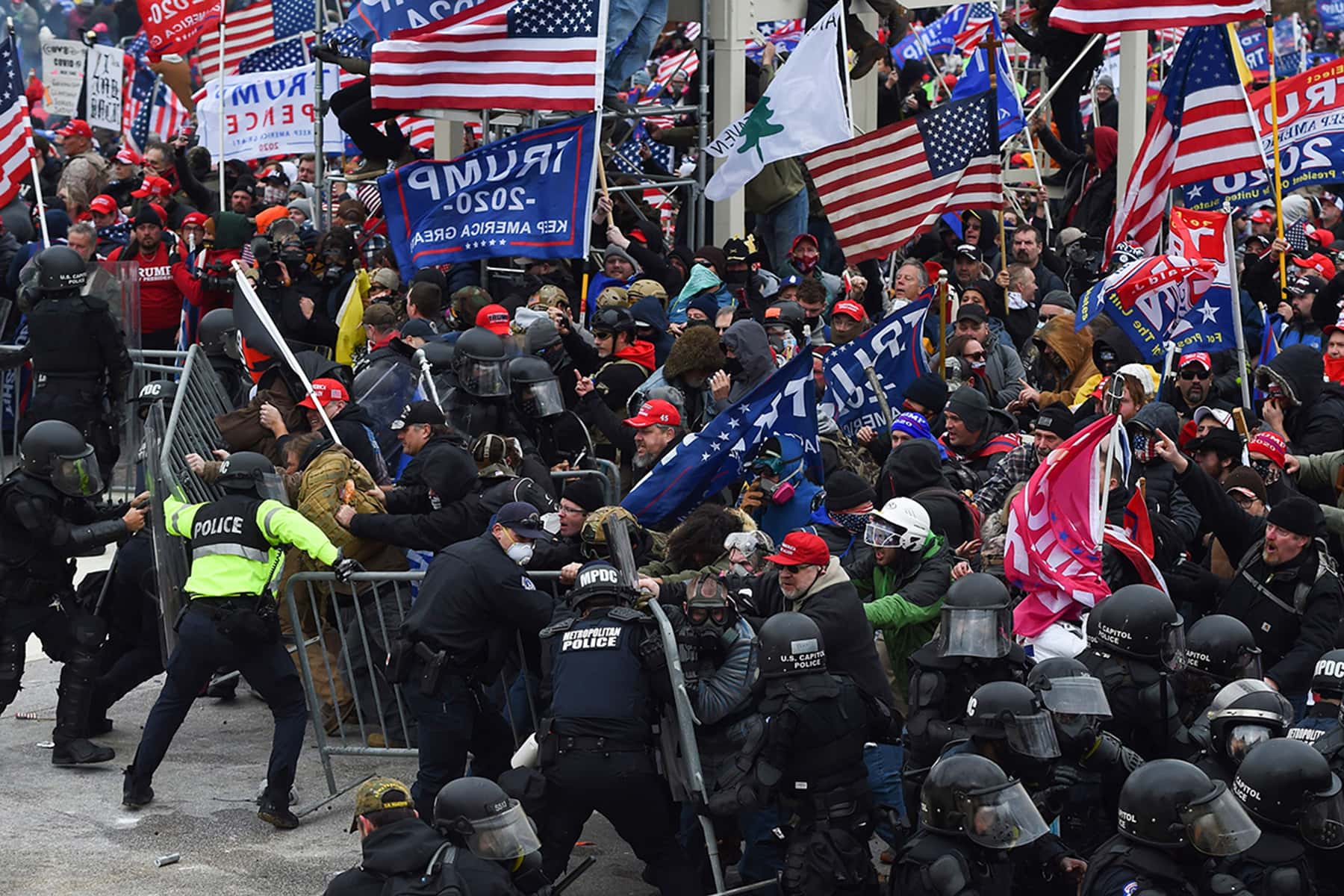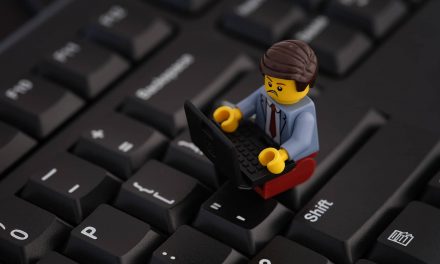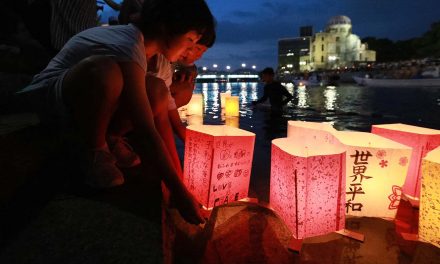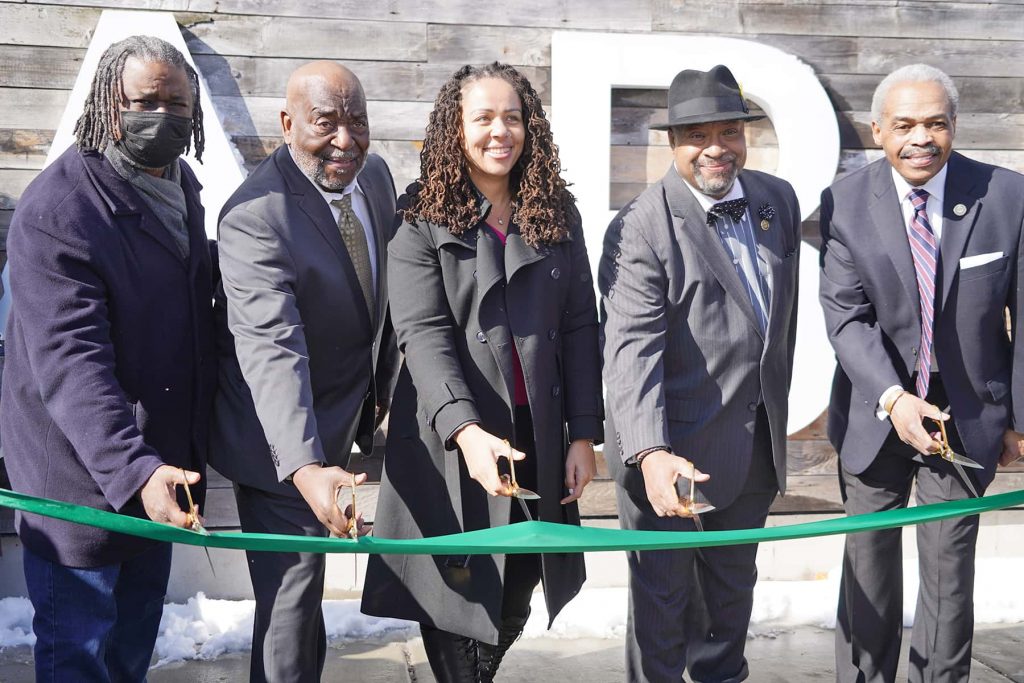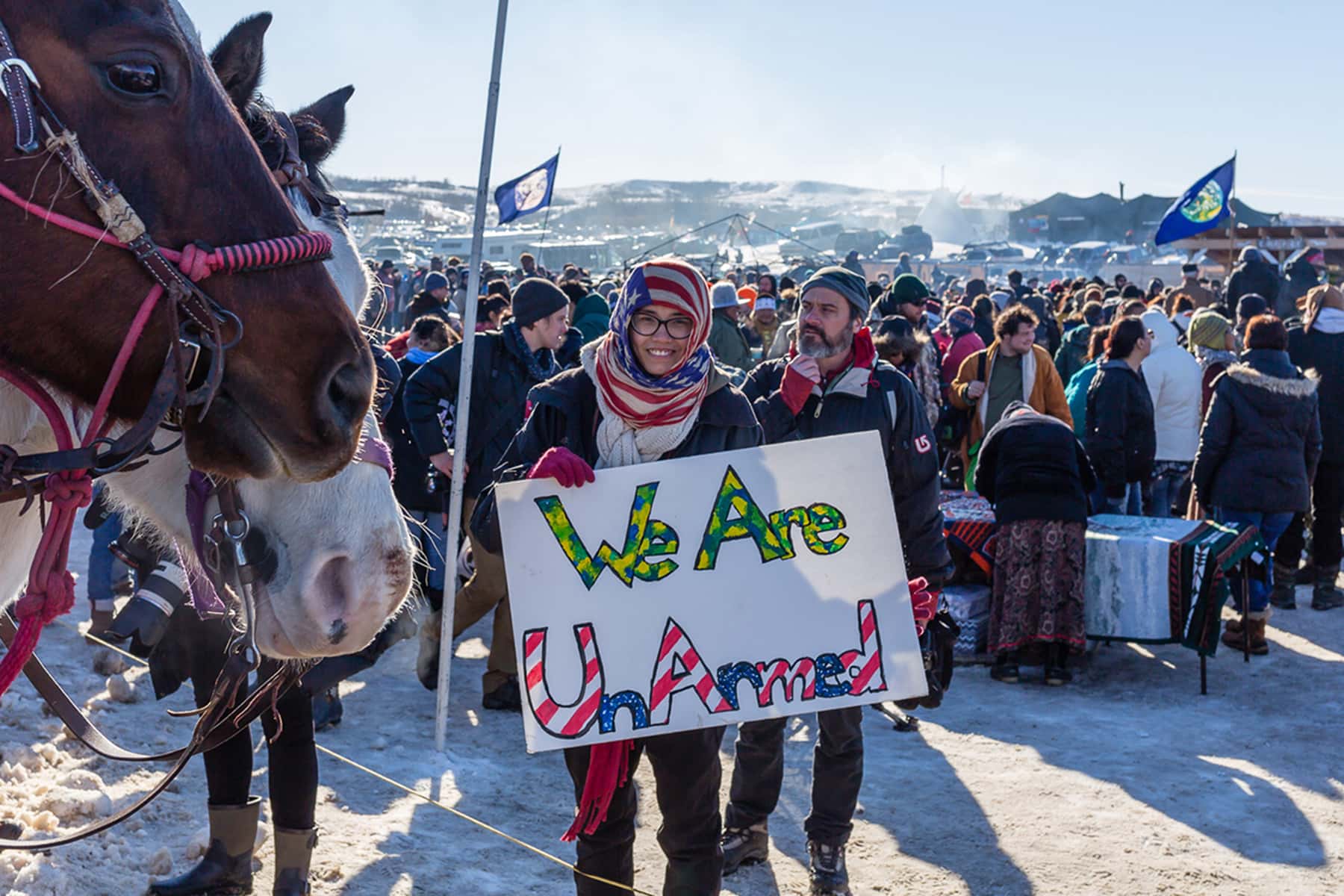
On January 6, while Congress was certifying the 2020 election results, hundreds of Trump supporters stormed the U.S. Capitol in Washington DC. They smashed windows, broke through doors, breached the building, and ran through it, snapping photos of themselves carting off documents and artifacts. No attacking force has rampaged through the Capitol since 1814, when British soldiers torched it during the War of 1812.
Tasked with protecting lawmakers and the building, the Capitol Police’s response was wildly disorganized. Their actions ranged from shooting a woman dead to taking a selfie with a rioter. Officers were pepper-sprayed and hit with projectiles; one has died of his injuries. The Capitol Police force detained no insurgents that day, though efforts are now underway to identify and charge the rioters, along with those who incited them, including the president.
The FBI has offered $50,000 for information leading to the conviction of anyone who placed pipe bombs, now defused, around the city. In response to calls from both Democratic and Republican Congressional leadership, the chief of the Capitol Police and the House and Senate sergeant-at-arms are resigning.
“I felt anger and disgust at the display of privilege showed by—and to—rioters in the Capitol,” says OJ Semans, an enrolled citizen of the Rosebud Sioux Tribe and co-executive director of the voting-rights group Four Directions. “No way would Black or Brown people be treated that way had they attacked a symbol of our democracy. … We all can recall the extreme force applied in Washington, D.C., during Black Lives Matter demonstrations this past summer.”
Semans, who is also a former captain of his Nation’s police force in South Dakota, says he is horrified at the unprofessional activities of the Capitol Police and calls the Jan. 6 event a chaotic display of White privilege and its relationship to the country’s dual system of justice.
Vice President-elect Kamala Harris wrote on Twitter that the country has two systems of justice—“one that let extremists storm the U.S. Capitol yesterday, and another that released tear gas on peaceful [Black Lives Matters] protesters last summer.”
“Blood has been spilled in the U.S. Capitol!” exclaims attorney Chase Iron Eyes, citizen of the Standing Rock Sioux Tribe and lead counsel for the Lakota People’s Law Project, with offices in Bismarck, North Dakota. “Indigenous people or any person of color would never dream of doing that.”
A Brutal History
Native people have long experienced the rough side of American justice—from the massacres that started in the 15th century and continued for hundreds of years to the disproportionate police violence and incarceration they are subject to today. “In the nonviolent Standing Rock demonstrations against the Dakota Access Pipeline in 2016,” Semans recalls, “law enforcement used water cannons in sub-freezing weather, rubber bullets, concussion grenades, and flash bangs powerful enough to blow off one young woman’s arm and blind another young woman.”
Iron Eyes says the stark contrast between law enforcement responses to people of color at Standing Rock and Black Lives Matter gatherings versus that to the White people trashing the Capitol Building shows us “who we are.” He says, “Genocide and racism are worked into the fabric of this country.”
Attorney and Four Directions legal director Greg Lembrich posted on Facebook: “Anyone saying ‘this is not who we are’ hasn’t been paying attention. This is exactly who we have become, and we know exactly how we got here and who is responsible. This president and these ‘protesters’ are not patriots; they are traitors and should be handled accordingly. And to those who have supported this up until now because they wanted their judges and their tax cuts: Your cowardice has brought shame on our country. And we won’t forget.”
Iron Eyes describes the disparities among classes and races in this country as painful. At the same time, he expresses hope that we will work together to move the country in a positive direction. As for the events of Jan. 6, he says, the struggle to protect White supremacy is nothing more than “fighting for first-class seats on the Titanic.”
“We Are Unarmed”
The Standing Rock demonstrations were held to protest an oil pipeline being built to cross, and thus jeopardize, the tribe’s water supply. They lasted about a year, starting in early 2016. Thousands of Native people and supporters came from around the country and the world to join members of the Standing Rock Sioux Tribe in a prayerful action.
“We are unarmed,” was a repeated, but often futile, cry. During just one 10-hour period on Nov. 19, volunteer physicians and medics attending to the protesters logged about 300 serious injuries resulting from police measures, including severe lacerations, fractures, and internal bleeding.
“If Native people or any people of color had done what those White supremacists did at the Capitol, we’d be filling body bags today,” says Joe Holley, chairman of the Te-Moak Tribe of Western Shoshone Indians, a coalition of four federally recognized tribes in Nevada. “We are shown an astronomically higher level of brutality.”
The devastating concussion grenades used at Standing Rock were banned in Iraq for fear of harming civilians, said U.S. Army veteran Griz Grzywa in an interview at Standing Rock in 2016. After multiple tours in Iraq, he joined the many veterans who went to Standing Rock to help protect the demonstrators. He was shocked to see police using weapons the U.S. military would not.
Rubber bullets were never intended for demonstrations, adds Semans. “They are hardened rubber projectiles intended to be used to confront armed hostiles who you want to incapacitate long enough to save a life or stop a hostage situation. They are called “nonlethal” but can create serious injuries.
Semans, Iron Eyes, and Holley make clear that they would never wish that the Capitol Police had attacked Trump’s mob with the weapons used against Native people. “Native American, Black, Latino, and Asian American people don’t want anyone to suffer the way we have,” Semans says. “Not in any manner, in any situation. We want equal rights. We don’t ask for more. We ask for equality.”
Unequal Justice
The gathering of violent Trump supporters in the nation’s capital couldn’t have been a surprise, despite the Capitol Police’s apparent lack of preparation. For days, pro-Trump fanatics were known to have been streaming into town to disrupt Congress’ ceremonial certification of Joe Biden’s presidential win. A Washington, D.C., hotel previously frequented by members of far-right groups closed for a period to avoid housing unruly guests. Trump’s plans for a nearby rally the day of Congress’ election certification had been known for weeks, according to CNN.
Trump’s White supremacist followers felt safe storming the Capitol because he has long encouraged them, including at a rally that very day, Semans says: “The president has destroyed so much of the progress we have made since the 1960s. What he has done is so detrimental to our country. He has so badly damaged America. It is a crime.
“The silver lining is that many Americans have now seen how unequal justice is and how the justice you get depends on the color of your skin. Many are saying heartfelt things about the need for change, and I have patience and will wait for those changes. But I’m not holding my breath.”
“Nor am I,” Holley agrees. “I foresee that White supremacists will keep crawling back out of the gutter they’ve fallen into for a very long time.”
Iron Eyes says he sees the United States as a work in progress. He says what happened on Jan. 6 was the dying gasp of long-term, corrupt, systemic, race- and class-based oppression. And he predicts that positive change will develop in a cyclical fashion.
“More people will work for a country we can be proud of. We’ll address the common foundations of our prosperity—clean water, healthy land, a stable climate, surviving the pandemic.” The radical-right fringe will reappear occasionally, even calling for extremes like civil war, Iron Eyes concedes, but adds that overall the United States will see forward motion.
“We claim we are exceptional. We are not. But we have the potential to be.”
Stеphаnіе Wооdаrd
Jоsеph Zummo, Jеssіcа Rіnаldі, and Rоbеrtо Schmіdt
Originally published by YES! Magazine as Native Americans on Police Response to Capitol Insurrection

